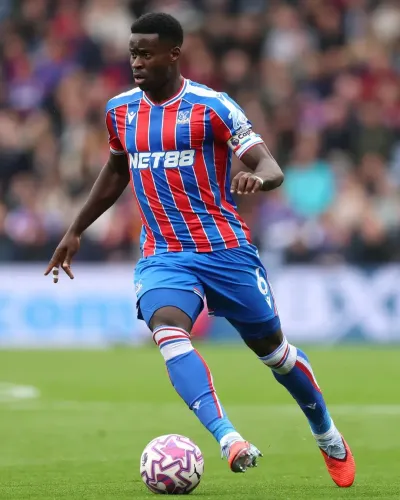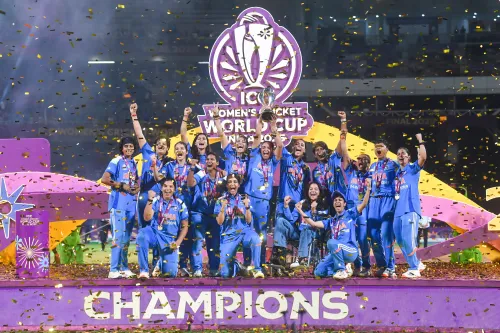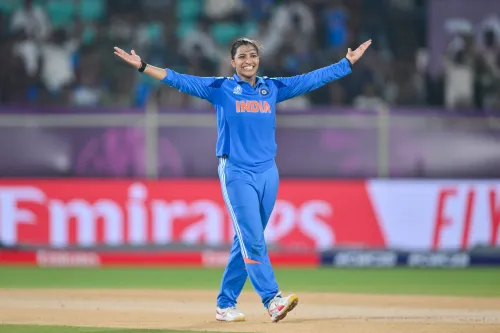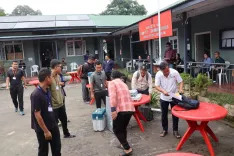IPC Tribunal Rules Russian Paralympian Nikolay Polukhin Guilty of Doping, 10 Years Post-Sochi Games
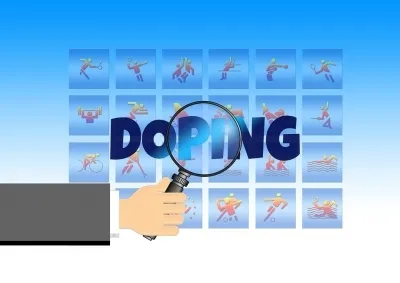
Synopsis
Key Takeaways
- Nikolay Polukhin found guilty of doping
- All results from Sochi 2014 disqualified
- Gold and silver medals forfeited
- State-sponsored doping scheme revealed
- IPC's investigation followed WADA's findings
Mumbai, March 27 (NationPress) The Independent Anti-Doping Tribunal of the International Paralympic Committee (IPC) has determined that Nikolay Polukhin, a Para cross-country and Para biathlon athlete from Russia, violated anti-doping regulations during the Sochi 2014 Paralympic Winter Games.
As a result of this ruling, which comes a decade later, Polukhin's individual outcomes from the event, which include a gold medal and two silver medals, have been annulled. He was found guilty of doping, which had gone undetected for years due to a Russian conspiracy.
The allegations stemmed from IPC investigations that examined evidence provided by the World Anti-Doping Agency (WADA) regarding the state-sponsored doping program in Russian sports from at least 2012 to 2015. During this period, the Moscow and Sochi laboratories employed a 'Disappearing Positive Methodology' to obscure suspected adverse analytical findings and, at the Sochi 2014 Olympic and Paralympic Winter Games, substituted ‘dirty’ urine samples with ‘clean’ urine from athletes.
On March 7, 2023, the IPC charged Polukhin with employing a prohibited method (specifically, tampering via urine substitution) in violation of Article 2.2 of the 2011 IPC Anti-Doping Code.
Polukhin acknowledged using trimetazidine (TMZ) out-of-competition in February 2014 (which was allowable at that time) but denied any knowledge of or involvement in sample swapping in March 2014. A hearing took place before the IPC’s Independent Anti-Doping Tribunal, as stated by the IPC.
Following the comprehensive scientific and factual evidence submitted by the IPC, the Independent Tribunal concluded that:
1. In 2014, a state-sponsored doping scheme operated in Russia; however, the Sochi laboratory did not anticipate needing to swap samples for the Paralympic Winter Games as it had done for the Olympic Winter Games. Thus, the Sochi laboratory lacked a clean urine bank for Russian Paralympic athletes.
2. During the Paralympic Winter Games, the Sochi laboratory identified presumptive adverse analytical findings for TMZ in several Russian Para cross-country skiers and biathletes (including Polukhin). The analysis of these samples was halted, and the results were reported as negative by the Anti-Doping Administration and Management System (ADAMS).
However, since the samples were slated for long-term storage for potential reanalysis, Russian authorities recognized that if the samples were later re-evaluated, the TMZ findings and the cover-up would be uncovered. To mitigate that risk, the 'dirty' urine in the sample bottles was discarded and replaced with 'clean' urine.
In Polukhin's case, forensic examination of the sample bottle revealed scratches and marks, along with urine residue tooth marks that could only have been caused by someone opening, re-closing, and then re-sealing the bottle.
An analysis conducted in 2018 of the urine in the bottle indicated that the composition of the urine had altered since the 2014 assessment by the Sochi laboratory. DNA analysis confirmed that the urine swapped into the bottle matched the athlete's DNA.
The Independent Tribunal stated there was 'no other reason' for reopening the sample bottles 'other than to swap the urine' and concluded that the athlete must have 'actively cooperated' in providing clean urine to Russian authorities for sample swapping purposes.
Polukhin failed to provide 'any logical or plausible explanation' for the evidence of sample swapping with his urine, and the Tribunal stated 'there is simply no other logical explanation.'
The Tribunal upheld the anti-doping violation charge. Given that the violation occurred during the Games, the Tribunal was required to determine the ramifications of the violation concerning the Sochi 2014 Paralympic Winter Games exclusively.
All other consequences, including the applicable period of ineligibility, will be established subsequently by the International Ski and Snowboard Federation (FIS) and the International Biathlon Union (IBU).
The Tribunal found Polukhin's actions during the Sochi 2014 Paralympic Winter Games to be 'particularly egregious' and 'significantly undermined the integrity of the event.'
According to Articles 9 and 10.1 of the 2011 IPC Anti-Doping Code, the Independent Tribunal disqualified all of Polukhin's results from Sochi 2014. Consequently, he will forfeit his gold medal from the Men's Para biathlon 15km Visually Impaired event, his silver medal from the Men's Para biathlon 7.5km Visually Impaired event, and his silver medal in the Men's Para biathlon 12.5km Visually Impaired event.
Initially, Polukhin appealed the decision to the Court of Arbitration for Sport, but the appeal was deemed withdrawn in March 2025 after he failed to pay the advance costs.
Jude Ellis, the IPC’s Head of Anti-Doping, stated: 'After the publication of the 2016 McLaren Report into state-sponsored doping in Russia, the IPC investigated several highly complex cases involving Russian athletes who participated in the Sochi 2014 Paralympic Winter Games.'
'Due to the extremely unique nature of these cases, with no positive samples available as is typically the case in anti-doping matters, gathering sufficient scientific and factual evidence to meet the threshold for charging an athlete with a doping violation has been challenging.'
'Following the analysis of vast data obtained through WADA investigations, Nikolay Polukhin’s case met the evidential threshold for an anti-doping rule violation charge. The resolution of this case concludes a lengthy process regarding potential anti-doping rule violations by Russian athletes at the Sochi 2014 Paralympic Winter Games.'
'The IPC appreciates WADA for the assistance received during this prolonged process,' Jude Ellis added.
Alongside Polukhin's case, based on evidence from WADA about Russia's state-sponsored doping program, the IPC suspended Russian Para swimmer Aleksey Lyzhikhin for two years in June 2024, while the Russian Anti-Doping Agency (RUSADA) has also charged several Russian Para athletes.


